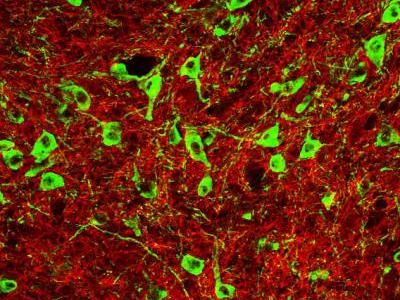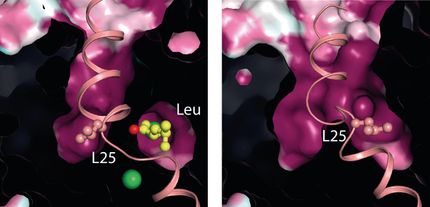One step closer to a new drug for alcohol dependence
Advertisement
Researchers at Karolinska Institutet and the Sahlgrenska Academy in Sweden might be one step closer to finding an effective drug for alcohol dependence. In two separate studies, they show that the dopamine stabilizer OSU6162 can reduce the craving for alcohol in alcohol dependent people and normalises the level of dopamine in the brain reward system of rats that have consumed alcohol over a long period of time. However, thorough clinical studies are needed to determine if the OSU6162 also can help alcohol dependent people drink less alcohol.
"The results of our studies are promising, but there is still a long way to go before we have a marketable drug," says Pia Steensland, PhD, Associate Professo at the Department of Clinical Neuroscience of Karolinska Institutet, and co-author of both studies. "The socioeconomic costs of alcohol are huge, not to mention the human suffering. It is inspiring to continue working."
Despite the pressing need, there are only a few approved drugs for the treatment of alcohol dependence, but their effects vary from person to person and the prescriptions rates are low. Consequently the hunt for new, more efficacious drugs for alcohol dependence continues.
The studies of OSU6162 are based on the knowledge of how the brain reward system stimulates us to act in the interests of our own survival. Since dopamine creates a feeling of wellbeing, such as when we exercise or eat good food, the memory associates the two so that we will repeat the behaviour. Alcohol makes the brain reward system release more dopamine than normal, creating a pleasant euphoric sensation. However, the more alcohol drunk, the more the reward system is desensitised and the less dopamine is released. With time, greater volumes of alcohol are needed to cause intoxication and eventually to attain a state of physical and emotional normality - addiction has set in.
In the clinical study the scientists examined for the first time if OSU6162 can reduce the craving for alcohol in people with alcohol dependence. Half the participants were treated with OSU6162 and half with placebo for a fortnight, after which both groups were exposed to different situations that could be assumed to elicit a craving for alcohol. The results show that the experimental group experienced less of a craving for alcohol after drinking one glass of an alcoholic beverage.
"At the same time, the OSU6162 group reported not enjoying the first zip of alcohol as much as the placebo group," says Dr Steensland. "One interesting secondary finding was that those with the poorest impulse control, that is those thought to be most at risk of relapse after a period of abstinence, were those who responded best to the OSU6162 treatment."
A study of rats adds to the understanding of how OSU6162 works, as it shows that rats that voluntarily consumed alcohol for almost a year had lower levels of dopamine in their brain reward system than rats that had never drunk alcohol. However, when the "alcohol rats" were treated with OSU6162 it was found that the substance counteracted the low concentrations of dopamine in the brain reward system.
"We therefore think that OSU6162 can reduce the alcohol craving in dependent people by returning the downregulated levels of dopamine in their brain reward system to normal," says Dr Steensland.

























































